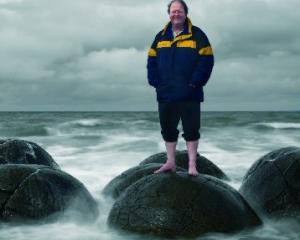The environmental protest movement has a mostly honourable history in this country and has earned the respect of a considerable number of citizens, but there have been occasions when protesters have chosen the wrong option to make their points. Such is the case with the stand-off over the preliminary technical survey being carried out for the Brazilian oil exploration firm, Petrobras, some distance off the coast of East Cape.
Objectors acting under the umbrella of Greenpeace have interfered with the ability of a seismic survey vessel to carry out its work, have endangered their own lives by swimming in front of the vessel, and a small fleet of protest boats continues to attempt to prevent survey work.
There are several legal issues also now at stake because the particular circumstances are raising questions of enforcement of New Zealand law, or even if New Zealand law applies. The survey ship is operating in an area well off the coast (although within this country's exclusive economic zone) and there is doubt about whether the Government or the police have powers of enforcement. Certainly, Petrobras is carrying out its survey within New Zealand law, according to assurances from the Government, and within the terms of its licence, although such documents do not, as yet, have protections for adverse environmental effects.
It is plain the Government, keen to encourage the exploration for new oil and gas reserves, is anxious to ensure global companies such as Petrobras are able to function here.
That is as it should be, but objectors do have a valid point in that legislative protections, though planned, have not yet become law.
An additional factor, which cannot be ignored, is the role of Maori objectors. Representatives of Te Whanau a Apanui and Ngati Porou, which claim tribal links to the East Cape area including the sea, have met Petrobras executives to express concerns of poten-tial environmental destruction, especially in the event oil is found and reserves exploited.
All of these expressions are no more than fears. No wells have been drilled, no oil or gas found; indeed, no seismic survey, which may (or may not) indicate the possible presence of hydrocarbons, has yet been completed.
There is a dominant political rather than a philosophical dimension to the protest stunts. The Green Party has attempted to compare chalk with cheese, attacking the Government for not sending navy ships to "observe" Japanese whaling activity in the Antarctic seas while considering doing so to stop the Greenpeace protest interfering with the seismic survey off East Cape.
The Government and its predecessor have been particularly active in raising objections to Japanese whaling in the Antarctic, and were the Japanese to attempt whaling within New Zealand's exclusive economic zone - say, off East Cape - would doubtless respond with all the force at its command. The party also claims the level of opposition to deep-sea oil drilling here is similar to the levels of opposition to whaling, but there is no shred of proof of this and governments cannot be expected to act militarily against private industry on the basis of assumptions.
The Labour Party, along with many protesters, complains about the risks of a repeat on our coasts of the Gulf of Mexico deepwater drilling disaster last year, and New Zealand's ability to deal with it.
Once again, this is raising fears of a reality that may never exist.
Labour is on safer ground in seeking legislative environmental protection within any licences granted for oil and gas exploration - something the Clark government failed to do in nine years. In fact, the Government is introducing such legislation soon, and it says it will also deal with deep-sea wells.
When that legislation is presented to Parliament, there will be every opportunity to object to it, and there is the prospect of the creation of effective law. Similarly, if and when oil and gas are discovered, none will be able to be extracted without conditional licensing.
The target for protest action should be the promised legislation that, while it should not prevent oil and gas exploration, needs to be sufficiently robust to ensure the marine environment will be adequately protected and, should an accident occur, restored.
That is the challenge for Greenpeace and others. Raising fears when none are justified is tactically foolish - and most likely to backfire.






